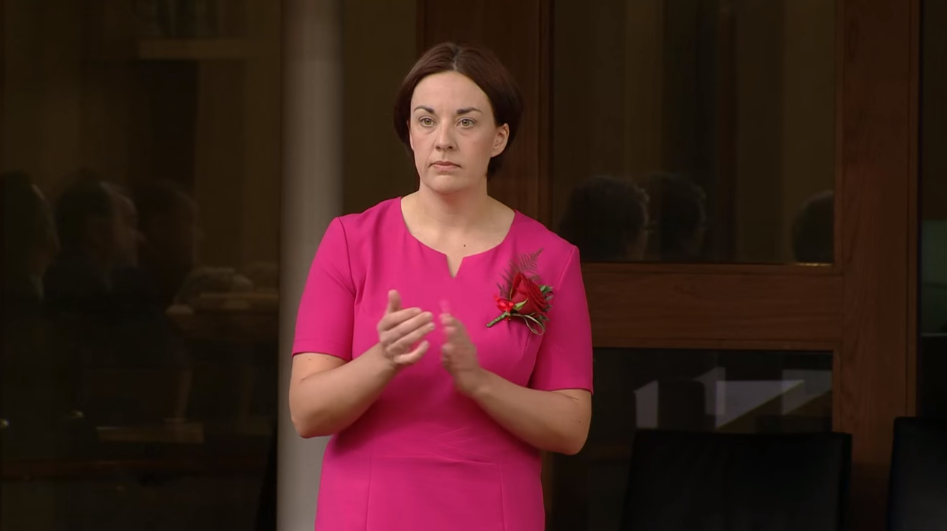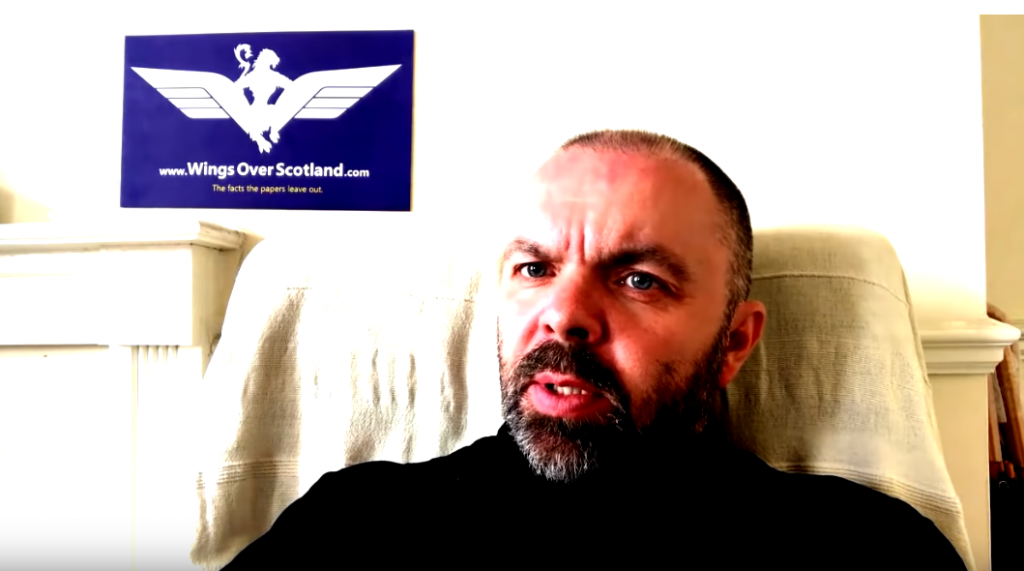Former Scottish Labour leader Kezia Dugdale has praised the “right to free speech” after winning a defamation case at Edinburgh Sheriff Court over comments which she believed were homophobic.
Dugdale was accused of defamation by pro-Scottish independence Wings Over Scotland blogger Stuart Campbell, after she claimed he had posted “homophobic tweets” in a column for the Daily Record.
The court case focused on a tweet the political blogger had published during the 2017 Conservative Party conference, in which he claimed that Conservative MSP Oliver Mundell “is the sort of public speaker that makes you wish his dad had embraced his homosexuality sooner.”
Oliver Mundell is the sort of public speaker that makes you wish his dad had embraced his homosexuality sooner.
— Wings Over Scotland (@WingsScotland) March 3, 2017
In a written judgment on Tuesday April 16, sheriff Nigel Ross, sitting as trial judge in the matter, said that Campbell’s tweet was “not motivated by homophobia and did not contain homophobic comments.” He therefore found Dugdale’s comments, including that Campbell was “someone who spouts hatred and homophobia towards others” to be defamatory.
Kezia Dugdale Is ‘Protected Under The Principle Of Fair Comment’
Image via Wings Over Scotland / Youtube
However, sheriff Ross added that the 37-year-old politician’s comments were “fair, even though incorrect”, and that she was consequently protected under the legal principle of fair comment.
For ‘fair comment’ to apply, Dugdale’s article had to be based on “true facts” and her comments had to concern a “matter of public interest” and be fair.
In Scotland, comments about a person are defamatory when they “tend to lower the person in the estimation of right-thinking members of society generally.” Sheriff Ross found that Dugdale’s comments were defamatory, but the defence of “fair comment” applied to protect them.
Despite Ms Dugdale incorrectly implying that Mr Campbell is homophobic, her article is protected under the principle of fair comment.
Sheriff Ross, Trial Judge
He ruled that Dugdale was not liable to pay the £25,000 in damages sought by Campbell, finding that Campbell had “suffered no quantifiable financial or other loss as a result of the article.”
An ‘Important Judgment For The Right To Free Speech And A Healthy Press’
Following the ruling, Dugdale posted a statement on Twitter on Wednesday April 17, in which she praised the right to freedom of speech and said she was “hugely relieved” by the decision.
Huge, heartfelt “thank yous” due to so many people across the political spectrum who supported me throughout this recent court case.
Here’s what I have to say following the ruling in my favour today: pic.twitter.com/e6ncVpxpM3
— Kezia Dugdale MSP (@kezdugdale) April 17, 2019
“This is an important judgement for the right to free speech and a healthy press,” said Dugdale.
“This ruling clearly demonstrates that every citizen is entitled to make comments as long as they are fair and reflect honestly held views.”
Article 10 of the Human Rights Convention states that “everyone has the right to freedom of expression,” which includes the “freedom to hold opinions and to receive and impart information and ideas without interference by public authority and regardless of frontiers.”
However, this right is subject to other laws that are “necessary in a democratic society,” in the interests of, for example, national security or public safety.
In a post script to the judgment, sheriff Ross added: “A right to insult is part of free speech. It is better described as a freedom, because a right to insult is not specifically awarded by the law. A freedom is simply something the law does not prevent.”
‘Homosexuality Provided The Punch Line Of The Joke’
Sheriff Ross found that: “Mr Campbell’s tweet contained a derogatory joke which depended on a reference to homosexuality.
“The comments were fair because the content of the tweet formed a basis of fact for a rational belief that it was derogatory about homosexual people.
“Ms Dugdale honestly and rationally formed the view that it treated homosexual people as inferior because same-sex relationships do not directly result in pregnancy.”
Sheriff Ross went on to note that “as one witness said, homosexuality provided the punch line of the joke.”
During the three-day hearing in March, Campbell said he was a “firm advocate of equal rights for gay people,” adding that claims that he is homophobic are “absurd,” according to the BBC. At trial, Campbell said he “despised homophobia in all its forms”.








